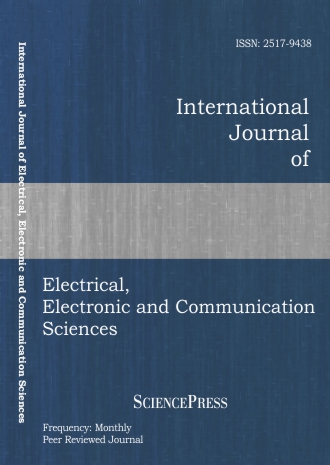
Scholarly
Volume:4, Issue: 2, 2010 Page No: 330 - 336
International Journal of Electrical, Electronic and Communication Sciences
ISSN: 2517-9438
936 Downloads
Seamless Multicast Handover in Fmipv6-Based Networks
This paper proposes a fast tree join scheme to provide seamless multicast handover in the mobile networks based on the Fast Mobile IPv6 (FMIPv6). In the existing FMIPv6-based multicast handover scheme, the bi-directional tunnelling or the remote subscription is employed with the packet forwarding from the previous access router (AR) to the new AR. In general, the remote subscription approach is preferred to the bi-directional tunnelling one, since in the remote subscription scheme we can exploit an optimized multicast path from a multicast source to many mobile receivers. However, in the remote subscription scheme, if the tree joining operation takes a long time, the amount of data packets to be forwarded and buffered for multicast handover will increase, and thus the corresponding buffer may overflow, which results in severe packet losses. In order to reduce these costs associated with packet forwarding and buffering, this paper proposes the fast join to multicast tree, in which the new AR will join the multicast tree as fast as possible, so that the new multicast data packets can also arrive at the new AR, by which the packet forwarding and buffering costs can be reduced. From numerical analysis, it is shown that the proposed scheme can give better performance than the existing FMIPv6-based multicast handover schemes in terms of the multicast packet delivery costs.
Authors:
References:
[1] D. H. Kwon, et al., "Design and implementation of an efficient multicast